We’re mid-October and it’s a time as good as ever to look back at the shows that moved us in September at the Vancouver Fringe. Many of these shows will continue on the worldwide Fringe circuit and we might even see many return to Vancouver as part of the Fringe or on local stages. So read up and keep an eye out for any returning performances!
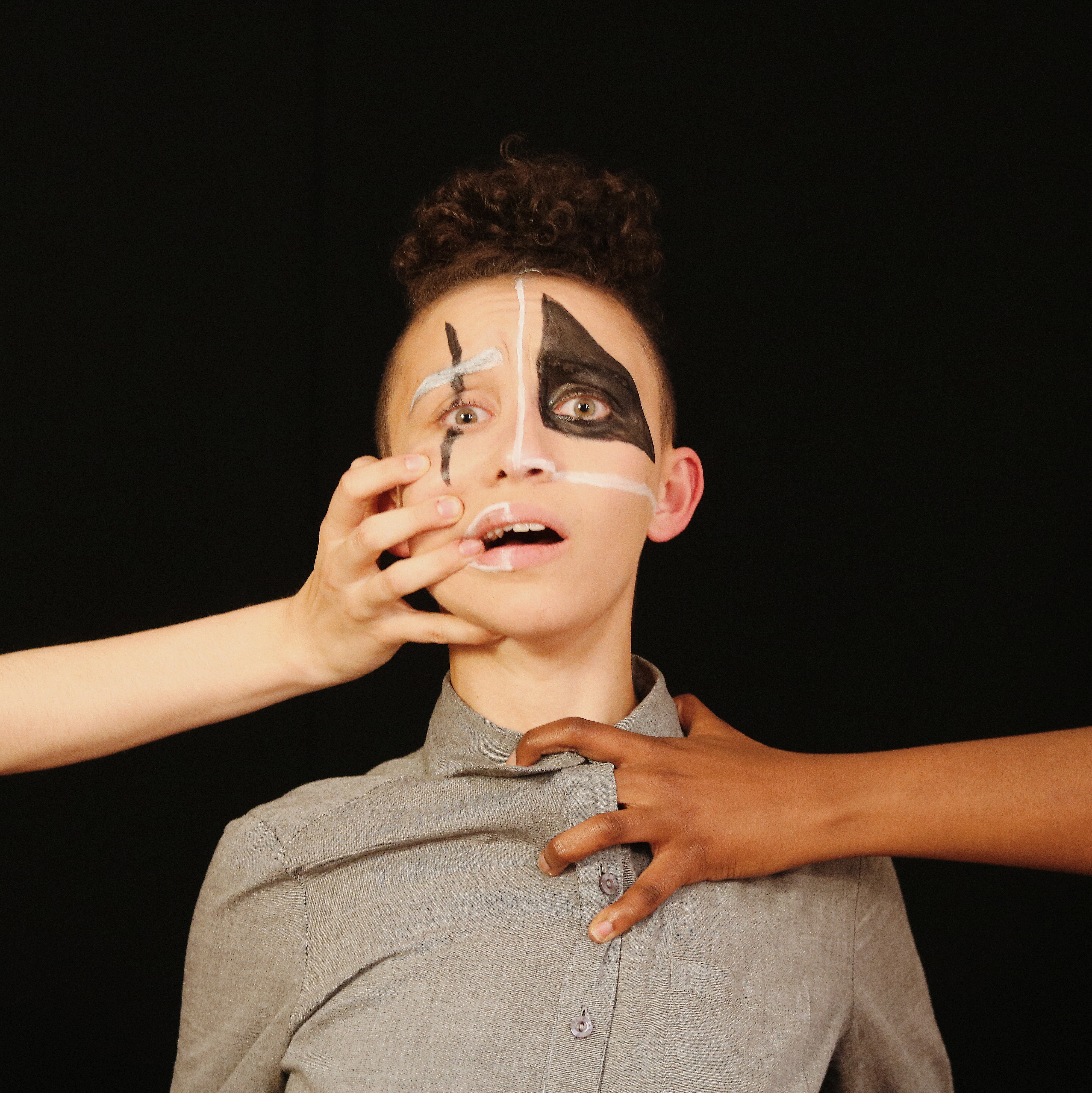
Mx
My favourite Fringe play this year! This play has it all! Hilarious and insidious, the characters will make you laugh as well as squirm uncomfortably in your seat. A true Fringe therapy play – this is the best of the best. “Mx” tells the story of Max, who is mixed-race. Max is learning about theirself from Nancy, who represents blackness. At the same time, Samantha, the embodiment of white female culture, tries to pull Max away with picnics and phrases like “I just want you to live your best life.” No matter your heritage, if you’ve ever felt stuck between two cultures, this play will make you feel understood.
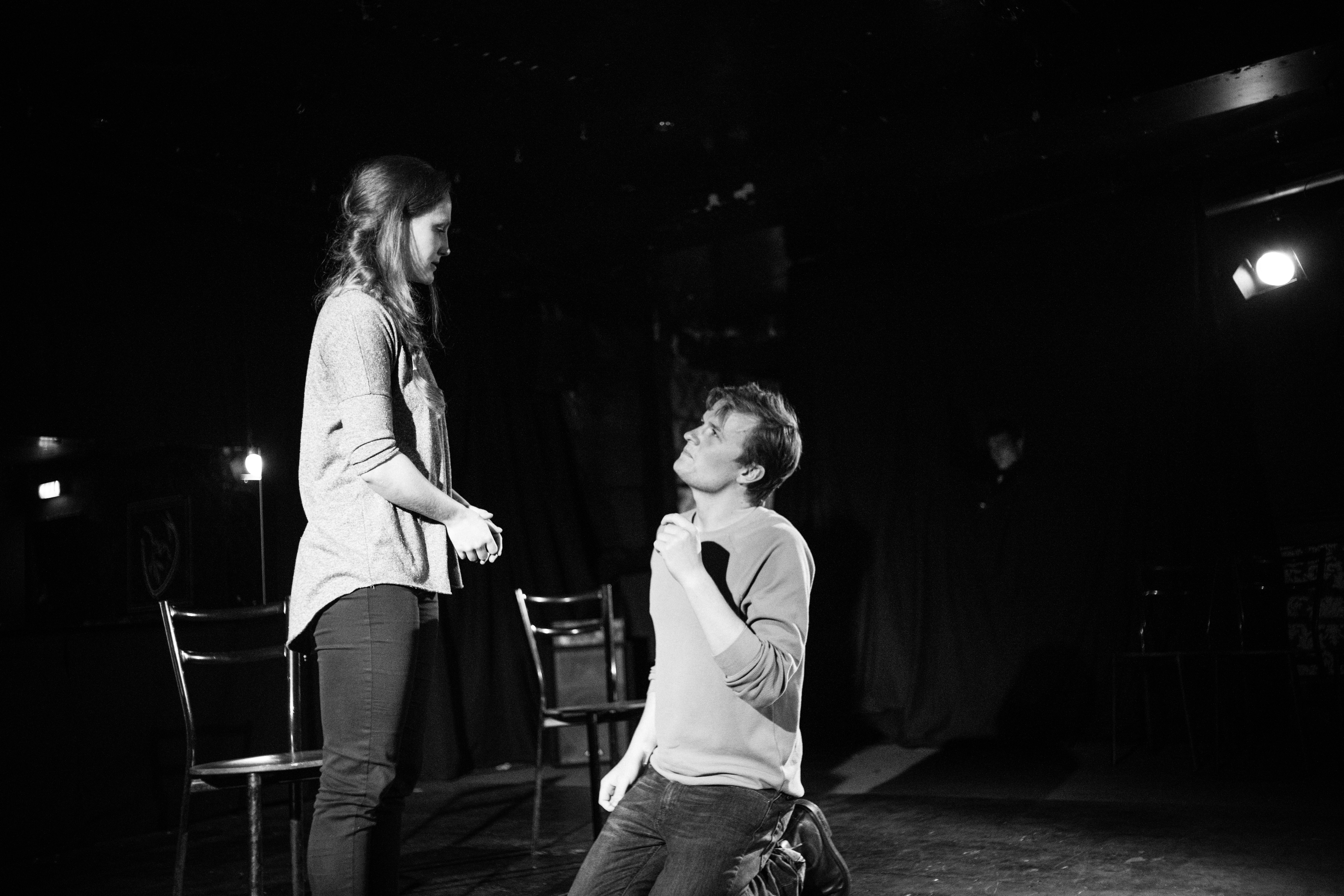
AI Love You
I walked into “AI Love You” a bit sceptical. After all, I know “Her” and “Pinocchio” so I’ve seen versions of whether humans can love AI or when AI wants to be real. This play, however, gave an entirely fresh and complex new take. The play opens up on a man, Adam, and his AI robot, April, who was designed to be his perfect girlfriend. The audience learns that we’re part of an ethical committee who will decide April’s fate. She’s been malfunctioning and wants to be deactivated. Adam, on the other hand, loves her and wants to explore every possible way to fix her. The audience asks questions and votes multiple times on whose story is more compelling.
Even though this story is about artificial intelligence, it deeply explores humanity, gender dynamics, and relationships. When I watched “AI Love You”, the audience swung back and forth and ultimately voted with Adam. When my friend watched it a different day, the audience sided with April. This is a play I could watch over and over again. Highly recommended!
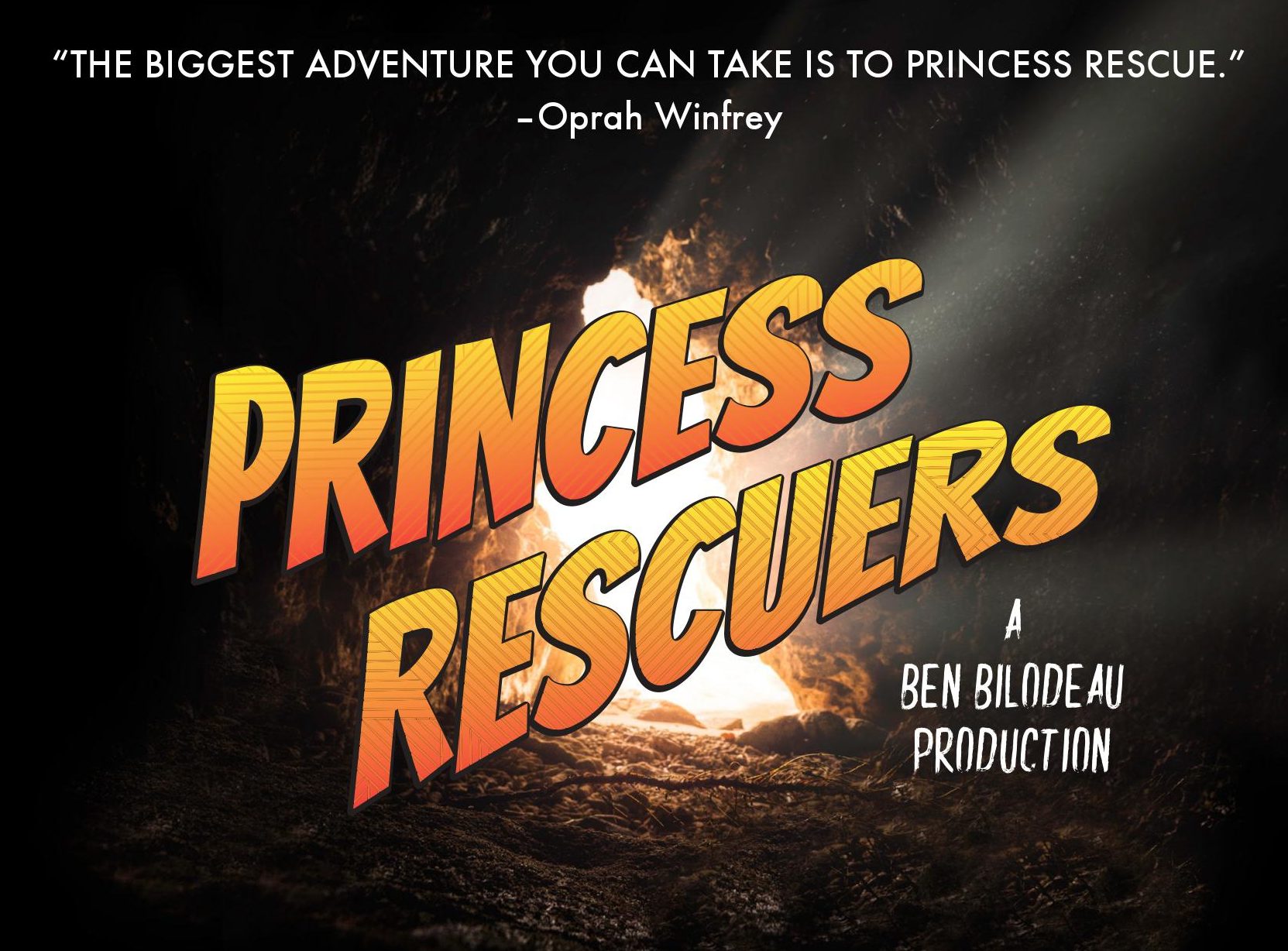
Princess Rescuers
“Princess Rescuers” was one of my surprise favourite plays this year. The story is set sometime in the future, where humans have lost modern technology and live like Europe during the middle ages. The story opens with Merc and Sidekick, two friends who are professional princess rescuers. In this world, women must set up traditional dilemmas to be rescued from so that they can marry their prince. Princes are lazy, though, so they hire professionals to rescue the princesses for them.
The story moves quickly and covers lots of fun twists and turns. The actors are great. The lines are hilarious. It’s an action-packed play with fighting scenes and magic tricks. The characters have just the right amount of self-awareness, like when they criticize the male writer for his inability to female leads. “Princess Rescuers” is exactly the hilarious feminist rewrite fairy tales need today.
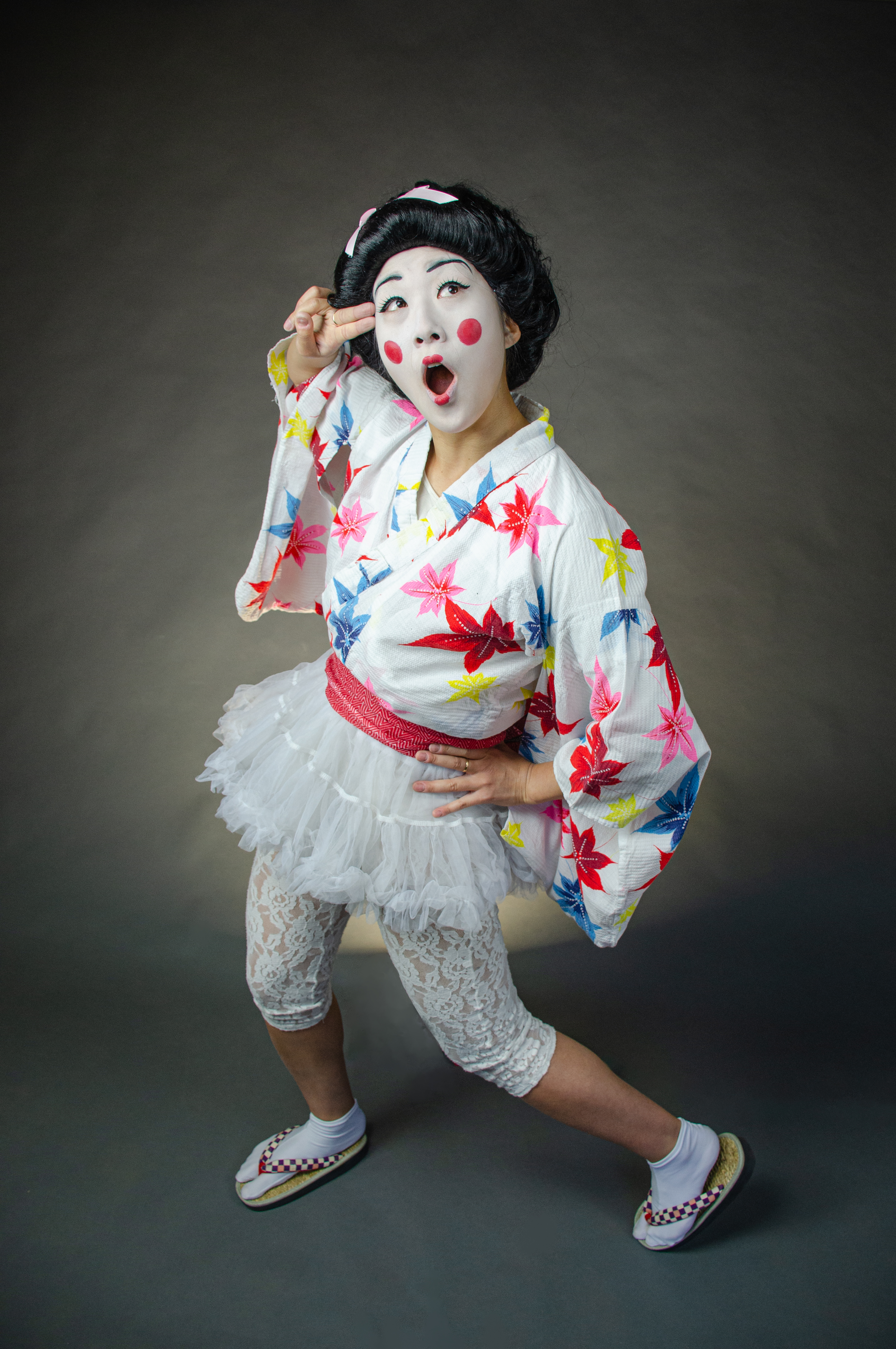
My Name is SUMIKO
June Fukumura is the best physical comedian I HAVE EVER SEEN. Taking on female Japanese stereotypes from Marie Kondo to Madame Butterfly, Fukumura is ruthless in her comedy. It is easy to see why this piece was voted “Pick of the Fringe.” Go see it!
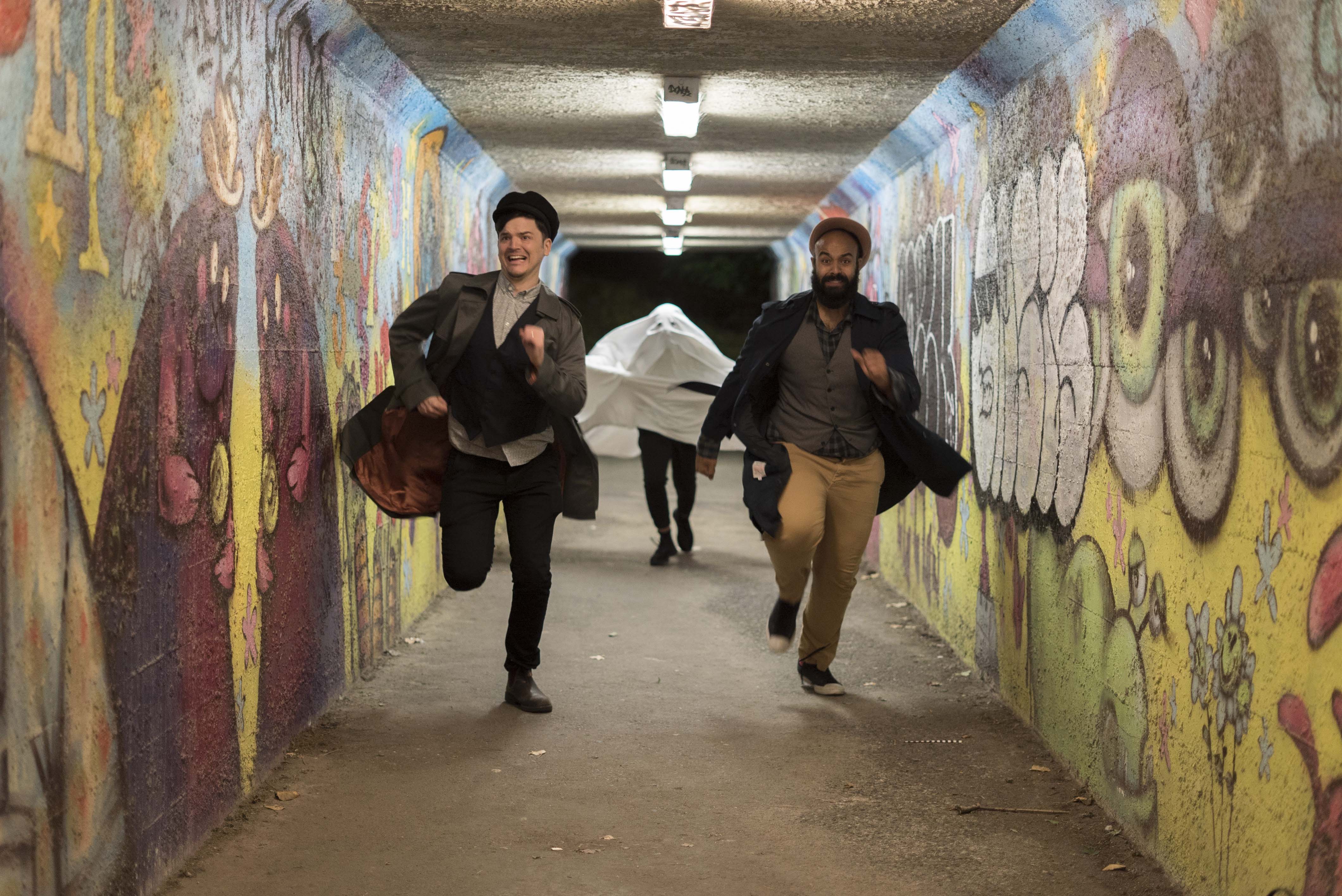
Fake Ghost Tours
“Fake Ghost Tours” is very silly in the best way. The two hosts, Abdul Aziz and Shawn O’Hara, take the audience around Granville Island, introducing each spot as the most haunted place on Granville Island and telling a corresponding ghost story. The stories are not particularly original, but the actors are so likeable and funny that the stories themselves don’t matter. Aziz and O’Hara proved themselves master storytellers between the scripted tales. While walking from location to location, they invited the audience to answer questions. My group had a lot: “When you die, does your ghost wear the clothes you died in forever?” “What happens if you die naked?” “Have you ever fallen in love with a ghost?” Their funny, off-the-cuff answers generated just as many laughs as their ghost stories. Highly recommended!
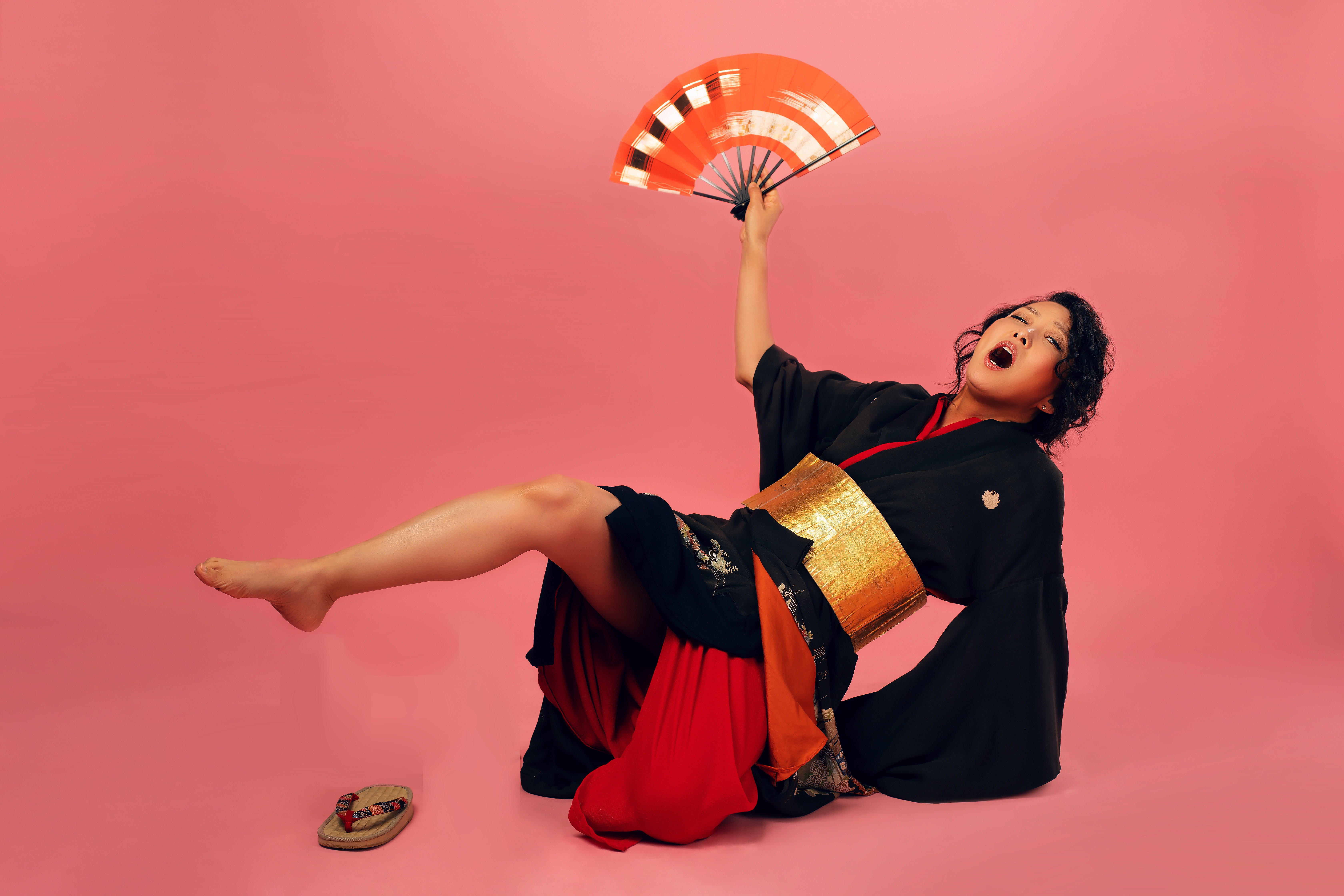
Pretty Beast
“Pretty Beast” is Kazu Kusano’s origin story about how she became a comedian. She acts out her childhood in Japan with her siblings, schizophrenic mother, and traveling father. We see the silly TV characters who she tried to emulate to make her mother laugh. She becomes class clown, but all the boys tell her that they don’t like funny girls. Even her boyfriend, who originally fell in love with her for her drinking and jokes, wants to change her. Men wanting to change Kusano is a common theme. Japanese women are supposed to be lady-like and demure, not loud and funny. In her 30’s, a mistranslated line in an American movie inspires her to move to the US to be a comedian. In North America, she has even more stereotypes imposed on her.
This is a feel-good story about overcoming societal expectations to do what makes you happy. It’s also about mental illness and how burdens grow when we keep them secret. It’s about finding love and humour after hurt.

Inescapable
“Inescapable” is the story of two friends who have known each for a long time. They are alone in a room, hiding out from a holiday party. We discover that they have a box on the table. The box has a warning that it sends people back in time.
And so begins my own personal hell: a never-ending Christmas party and a never-ending argument between best friends. The play generates laughs, but overall it is frustrating to watch. I was tired of hearing the same conversation with slightly different twists. Each time they started again, the woman behind me sighed, whispering, “Get it together!”
But that’s how friendship works. Arguments go in circles, slowly getting closer to the truth. This play reminded me to be grateful that I can move on.
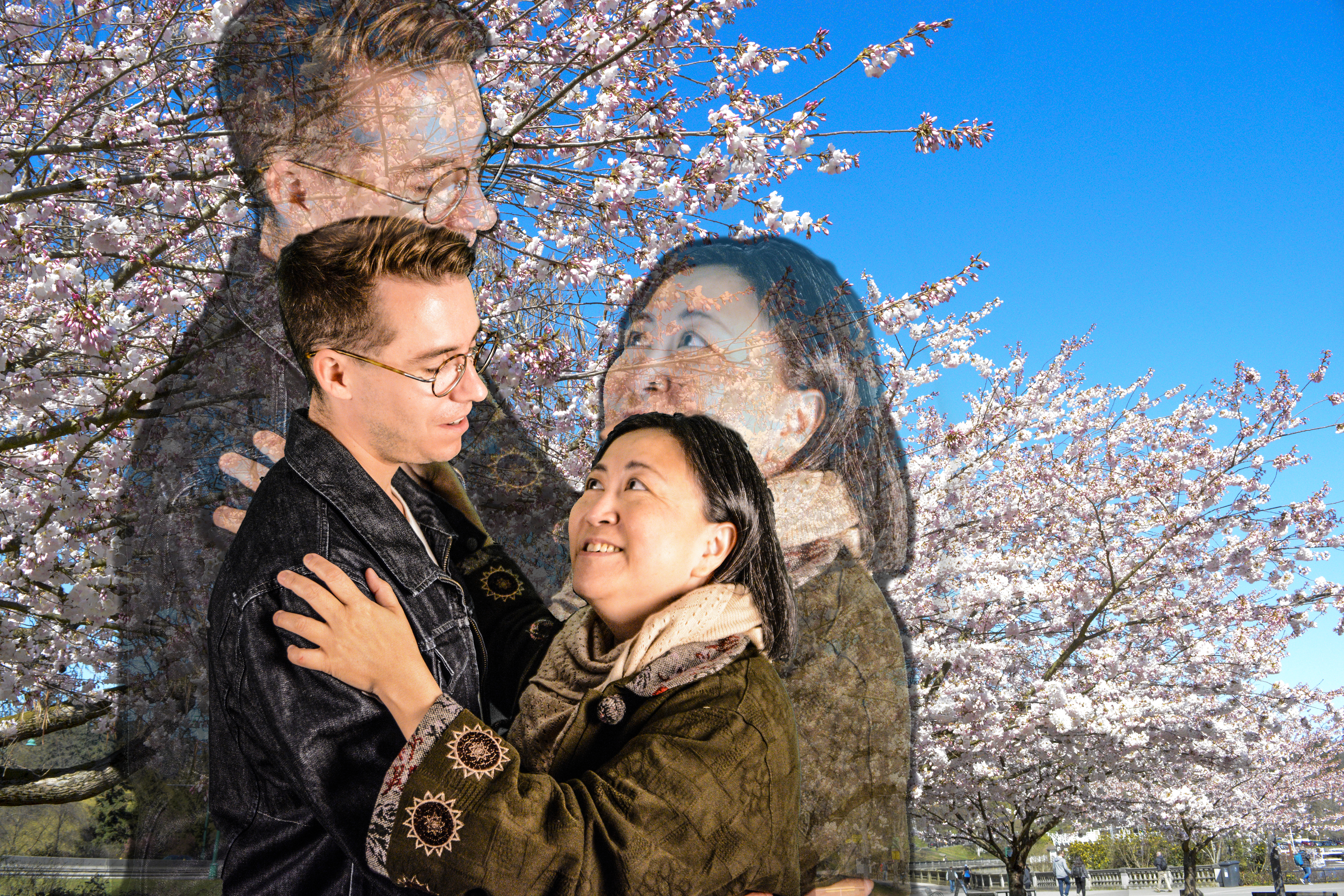
Two Modern Noh Plays by Yukio Mishima
I was excited to see this play because I love fairy tales, but the problem with seeing new fairy tales as an adult is that you realize the stories are messed up.
The first story introduces a drunk young poet who loves Sakira Park because the benches are full of lovers. He admonishes an old woman for taking up a bench to herself when it could seat lovers instead. She tells him that she once was beautiful, therefore she will always be beautiful – but that anyone else who calls her beautiful will die. He doesn’t believe her so she tells us about being a young woman with lots of suitors. Through her storytelling, the poet can see that she indeed beautiful and can’t stop himself from telling her.
The second play is about a young woman who waits every day at the train station for a lover who left her three years ago and told her he would return. She lives with a bitter, 40-year-old artist who has never married or felt love. One day a newspaper runs a story about the tragic young woman and it helps her old lover find her at the artist’s house. The artist doesn’t want them reunited, however, because she enjoys watching the lover’s everlasting waiting and hoping.
Both stories are whimsical and sad, but don’t feel particularly modern. The elegant set, strong acting, and graceful choreography carry this piece.
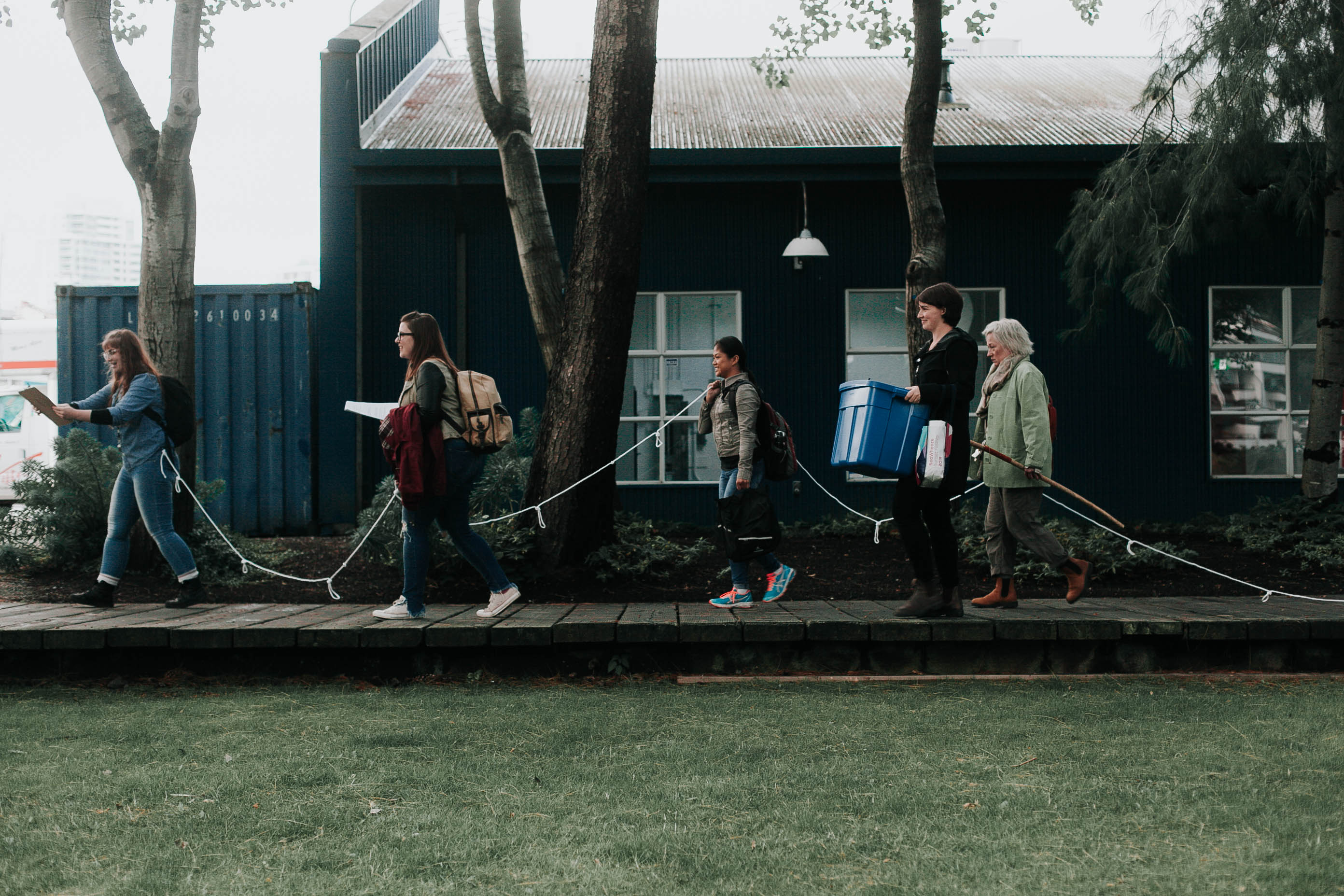
The Trophy Hunt
The Trophy Hunt explores big game hunting in Africa through three different stories: an American trophy hunter, a South African guide, and a vengeful lioness. The audience is guided through the east side of Granville Island by an enthusiast former-camp counsellor, who keeps the audience moving with camp songs. It’s a fun walk and the South African guide steals the show, although it feels like Taylor Swift’s “Wildest Dreams” version of Africa: all white people and animals.

Tomatoes Tried to Kill Me but Banjos Saved My Life
I went to this show on a personal recommendation from someone and really wanted to enjoy it. It includes banjo music and touching, universal messages – what’s not to love? It even received a standing ovation. But, as I sat plastered in my seat, I wondered if I was the anomaly in the audience.
Afterwards, I asked my boyfriend what he thought and he answered, “It was ok. It felt like listening to a CEO’s keynote speech.”
Which makes sense because the creator, Keith Alessi, in an accountant who used to run companies. He had a difficult upbringing and coped by developing a positive attitude towards everything, which helped him in the business world. Three years ago, however, he was diagnosed with cancer and given 50/50 odds of surviving it. He tells us how humbling it is to have your life reduced down to statistic, that disease affects everyone the same – but the cancer also crystalized what was important in his life (spoiler: banjos) and he feels special to be a survivor.
I know many people who have had cancer – some survived and some did not. Hearing Alessi to say that he felt special for surviving felt cruel to everyone who has died. Disease does not affect everyone equally. Numerous studies show that the medical industry systematically discounts women and people of colour. Even the best doctors operate in a system biased by culture. Earlier this year, my 30-year-old acquaintance Martin Lintag died from blood cancer. He’s Filipino and needed a compatible stem cell donor, but Canada’s stem cell bank is not representative of Canadians: almost 70% is Caucasian, less than 1% is Filipino.
All in all, despite its pithy title and fun music, this play did not land for me. But most of the audience seemed to love it.
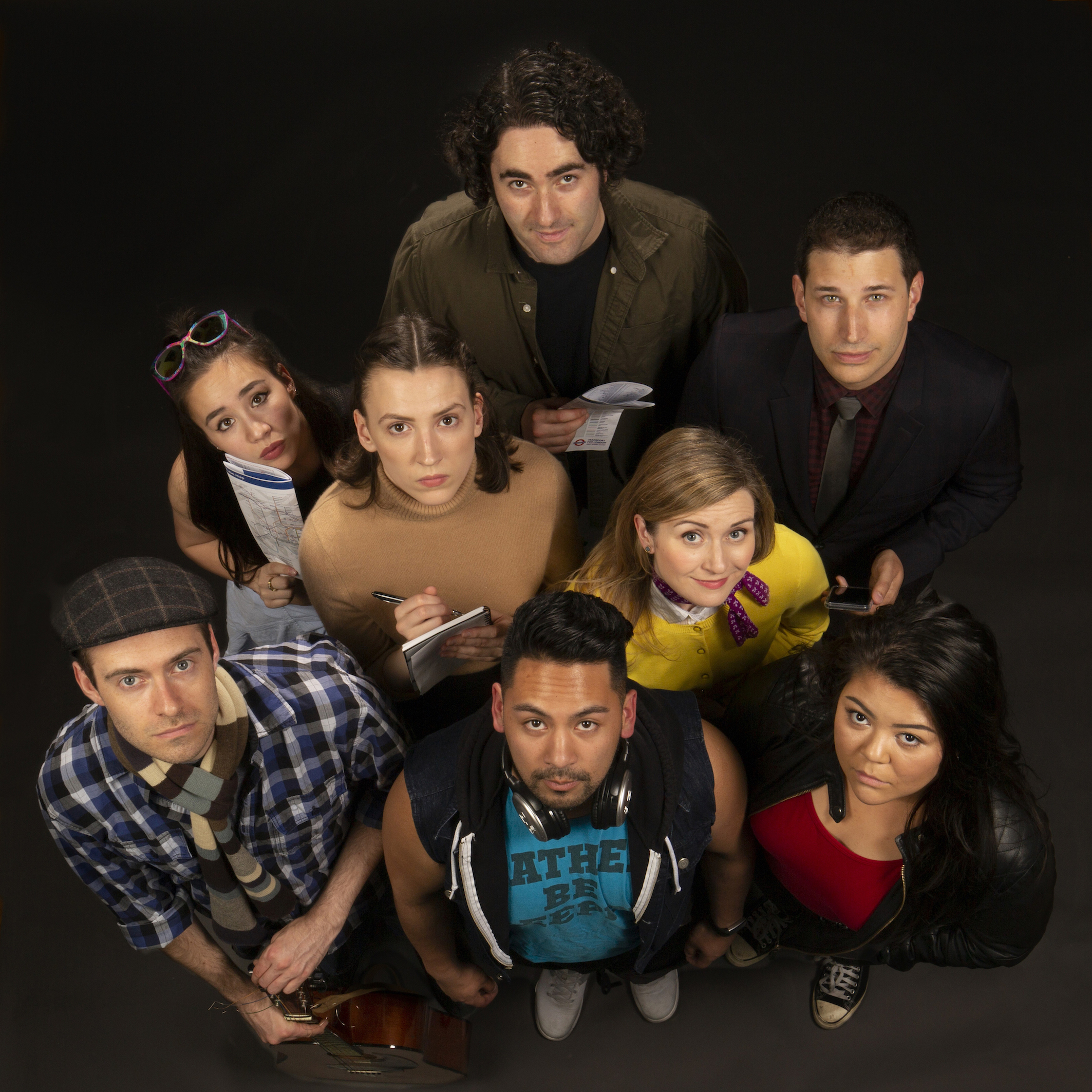
LIFT
LIFT is a musical that takes place in London’s Covent Garden Tube station. The music is great and the actors are terrific. Their minimal set is cleverly used. I wanted to be carried along with the music, but unfortunately spent too much time trying to figure out the storyline.
Right from the beginning, I had questions. Is the guitarist reading a note from his girlfriend? Is he outside the real world because he’s imagining lives for other people in the lift? Why is he in love with Kate? How do they come together? Why is the dancer also named Kate? What’s her history with her gay friend? Why is everyone obsessed about one year?
Maybe I missed some key lyrics.
Advance Theatre: New Works by Diverse Women
This year, I was lucky enough to catch three of the five “Advance Theatre” plays. They were all amazing. I cried at every single reading.
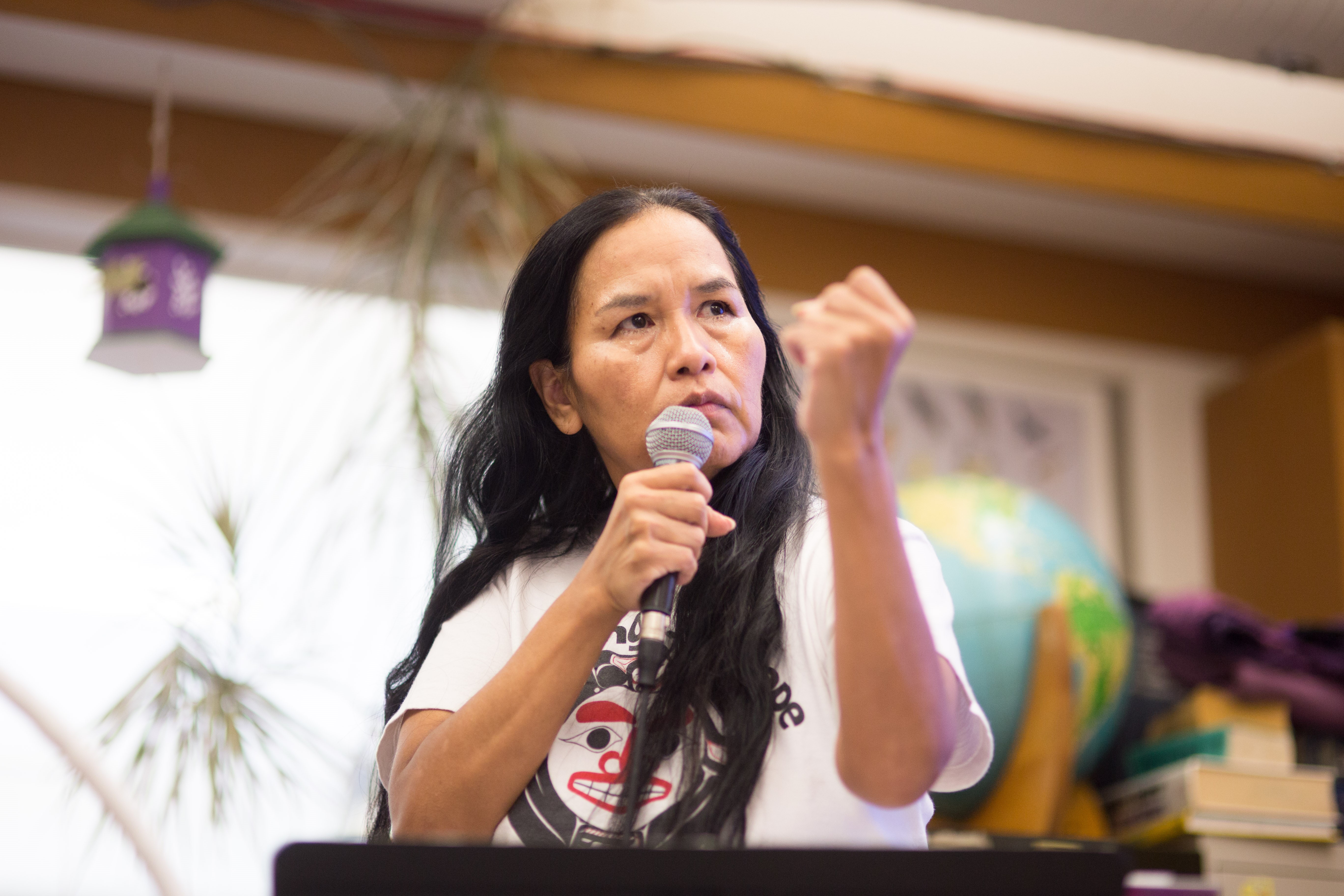
Sis Ne’ Bi-Yiz: Mother Bear Speaks
What a story! In the 1990s, MacDonald School was dangerously underfunded. Kids were dropping out as early as 8-years-old. This play is author/performer Taninli Wright’s true story of walking across British Columbia to pressure politicians to allocate more resources to Indigenous children. Taninli shares with us her fear to walk along the Highway of Tears, the physical struggle, and – most of all – the compassion she inspired. Taninli should be as famous as Terry Fox. This play is being further developed for the Heart of the City Festival in October. Go see it!
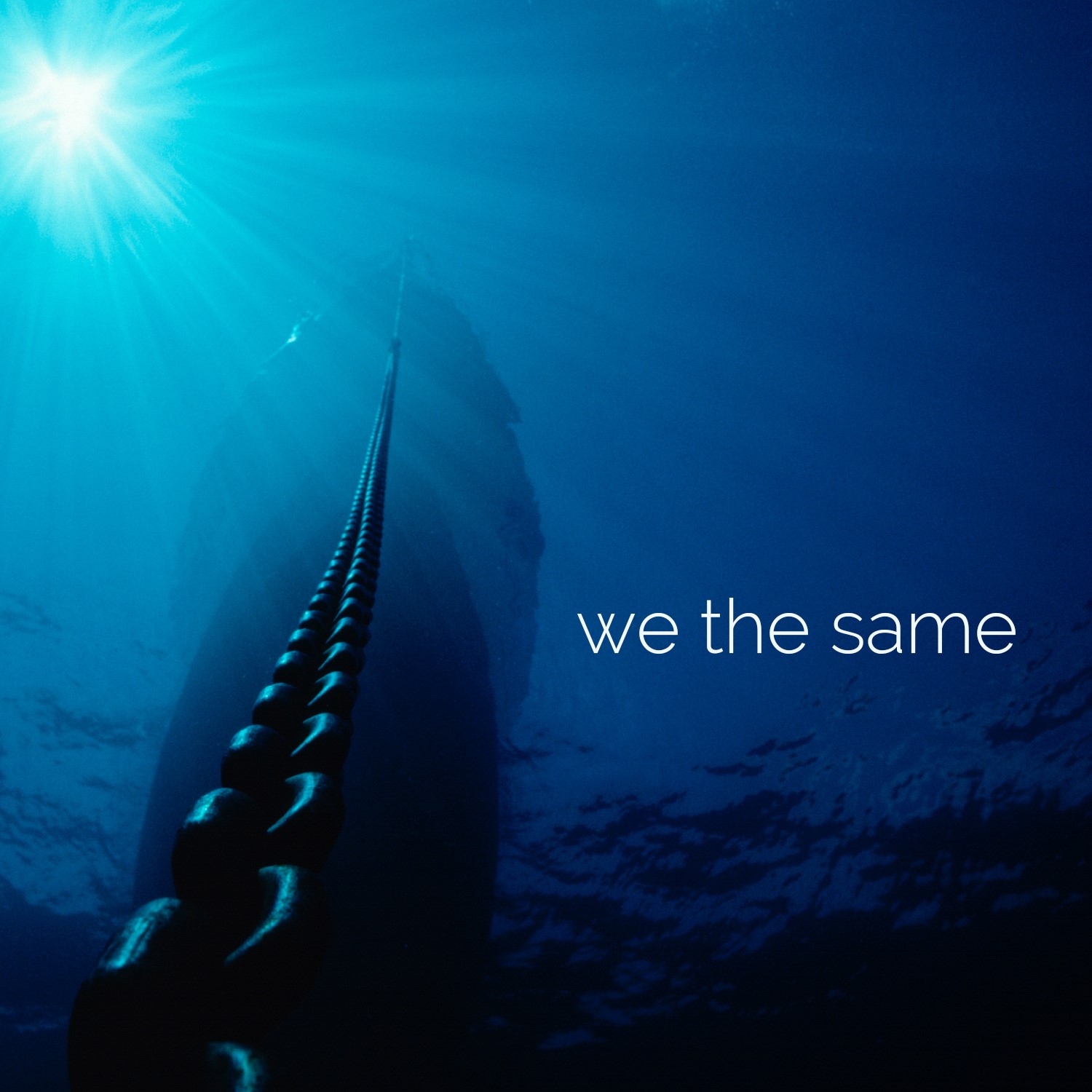
we the same
I can’t wait to see we the same as a full play. This beautiful story is playwright Sangeeta’s Wylie’s first play about a family of Vietnamese refugees and their journey to Canada. For the reading, actors read scenes from the play, intermixed with other speakers about Vietnamese culture and music. I believe everyone walked out of the event anticipating the day they can see the whole thing.

Fling
Fling is one of those rare pieces that mixes honesty, compassion, and humour. The play is about two sisters packing up their parent’s house after their mother’s death. Their father lives in a home with deteriorating dementia. As they go through their parent’s belongings, they discover a secret from their family’s past and have to ask themselves, what does mercy look like when your father was a jerk?
To learn more about the Vancouver Fringe and year-round theatre programming click here!
– Bethany Dobson
